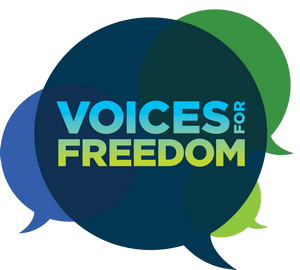Misinformation is incorrect or misleading information. It differs from disinformation, which is deliberately deceptive and propagated information. Early definitions of misinformation focused on statements that were patently false, incorrect, or not factual. Therefore, a narrow definition of misinformation refers to the information's quality, whether inaccurate, incomplete, or false. However, recent studies define misinformation per deception rather than informational accuracy because misinformation can include falsehoods, selective truths, and half-truths.

Joseph Michael Mercola is an American alternative medicine proponent, osteopathic physician, and Internet business personality. He markets largely unproven dietary supplements and medical devices. On his website, Mercola and colleagues advocate unproven and pseudoscientific alternative health notions including homeopathy and opposition to vaccination. These positions have received persistent criticism. Mercola is a member of several alternative medicine organizations as well as the political advocacy group Association of American Physicians and Surgeons, which promotes scientifically discredited views about medicine and disease. He is the author of two books.
The Center for Countering Digital Hate (CCDH) is a British non-profit organisation with offices in London and Washington, DC. It campaigns for big tech firms to stop providing services to individuals who may promote hate and misinformation, including neo-Nazis and anti-vaccine advocates, and campaigns to restrict media organisations such as The Daily Wire from advertising. CCDH is a member of the Stop Hate For Profit coalition.
Children's Health Defense (CHD) is an American 501(c)(3) nonprofit activist group mainly known for anti-vaccine disinformation, and which has been called one of the main sources of misinformation on vaccines. Founded under the name World Mercury Project in 2007, it is chaired by Robert F. Kennedy Jr. The group has been campaigning against various public health programs, such as vaccination and fluoridation of drinking water. The group has been contributing to vaccine hesitancy in the United States, encouraging citizens and legislators to support anti-vaccine regulations and legislation. Arguments against vaccination are contradicted by overwhelming scientific consensus about the safety and effectiveness of vaccines. Its $15-million budget is funded through donations from individuals and affiliate marketing revenues.

Media coverage of the COVID-19 pandemic has varied by country, time period and media outlet. News media has simultaneously kept viewers informed about current events related to the pandemic, and contributed to misinformation or fake news.
An infodemic is a rapid and far-reaching spread of both accurate and inaccurate information about certain issues. The word is a portmanteau of "information" and "epidemic" and is used as a metaphor to describe how misinformation and disinformation can spread like a virus from person to person and affect people like a disease. This term, originally coined in 2003 by David Rothkopf, rose to prominence in 2020 during the COVID-19 pandemic.
Plandemic is the name of a trilogy of conspiracy theory films produced by Mikki Willis promoting misinformation about the COVID-19 pandemic. They feature Judy Mikovits, a discredited American researcher and prominent anti-vaccine activist. The first video, Plandemic: The Hidden Agenda Behind Covid-19, was released on May 4, 2020, under Willis' production company Elevate Films. The second film, Plandemic Indoctornation, which includes more interviewees, was released on August 18 by Brian Rose's distributor of conspiracy theory related films, London Real. Later on June 3, 2023, Plandemic 3: The Great Awakening was released on The Highwire, a website devoted to conspiracy theories run by anti-vaccine activist Del Bigtree.
There have been several COVID-19 protests in New Zealand held since 2020, where people protested the government's response to the COVID-19 pandemic in New Zealand, in particular the lockdown measures in place in March–May 2020, August 2020, and August–November 2021 and the later vaccine mandates. Most politicians both within and outside of Government and the vast majority of people have condemned these protests and view them as grandstanding by the organisers, and fear they may have spread the virus.
William Desmond Te Kahika Jr, also known as Billy TK Jr, is a New Zealand conspiracy theorist, blues musician and former political candidate. During the 2020 New Zealand general election, Te Kahika attracted media coverage both as the leader of the fringe New Zealand Public Party and for his promulgation of conspiracy theories. Te Kahika and the Public Party opposed the New Zealand Government's lockdown restrictions in response to the COVID-19 pandemic.
Misinformation related to immunization and the use of vaccines circulates in mass media and social media in spite of the fact that there is no serious hesitancy or debate within mainstream medical and scientific circles about the benefits of vaccination. Unsubstantiated safety concerns related to vaccines are often presented on the internet as being scientific information. A high proportion of internet sources on the topic are "inaccurate on the whole" which can lead people searching for information to form "significant misconceptions about vaccines".

Ty Bollinger is an American misinformation marketer and conspiracy theorist who promotes alternative medicine treatments for cancer and vaccine-preventable diseases. Bollinger has no medical training and has a history of disseminating misinformation about cancer treatments, anti-vaccine conspiracy theories, promoting ineffective or unproven cures, and other conspiracy theories on social media platforms. With his wife Charlene, he runs the website The Truth About Cancer and its associated social media accounts, where they sell books, videos, and nutritional supplements based on these ideas.
Claire Ann Deeks is a New Zealand anti-vaccine activist who has challenged the government's response to COVID-19. She was an unsuccessful candidate for the Advance NZ party in the 2020 general election, and set up the group Voices for Freedom (VFF), which distributed pamphlets that have been criticised by experts as containing COVID-19 misinformation about vaccines, lockdown and the wearing of masks. As a food blogger, Deeks promoted the paleo diet and "healthy" lunchboxes for children, and developed a petition to stop the rating system for foods used by the NZ and Australian governments. She is a former intellectual property lawyer.
Simon James Thornley is a New Zealand medical doctor and academic specialising in epidemiology and biostatistics, and as of 2021 is a senior lecturer at the University of Auckland.

Susan Jane Grey is a political figure and environmental lawyer in Nelson, New Zealand. She is the co-leader of the NZ Outdoors & Freedom Party and of Freedoms NZ. She is known for promoting medicinal cannabis rights and opposing COVID-19 vaccination, 5G technology, and the use of 1080, frequently sharing misinformation on social media about the effectiveness of COVID vaccination.
Te Pūnaha Matatini Centre for Complex Systems and Networks is a New Zealand Centre of Research Excellence that focusses on interpreting data about the environment, economy, and society to inform policy decision-making and public debate. Funded by the New Zealand Government, it is hosted by the University of Auckland and works in partnership with other universities and organisations, including Manaaki Whenua – Landcare Research. During the COVID-19 pandemic, Te Pūnaha Matatini developed mathematical models within different scenarios and provided data to inform the response of the New Zealand Government to the pandemic. Shaun Hendy, David Hayman and Michael Plank were among the high-profile members of the organisation who regularly commented on the COVID-19 pandemic in the news media at the time. The leadership of Te Pūnaha Matatini investigators has supported the setting up of independent research programmes, including Covid-19 Modelling Aotearoa and The Disinformation Project.

The 2022 Wellington protest was an anti-mandate and anti-lockdown occupation of the grounds of Parliament House and Molesworth Street in Central Wellington during the peak of the COVID-19 pandemic. The occupation spring boarded off the New Zealand Convoy 2022, a mass convoy of vehicles that made its way from the top of the North Island and the bottom of the South Island to Parliament starting on Waitangi Day and arriving three days later on 9 February. The occupation lasted just over three weeks. At its peak, the protest spread over a large area of Thorndon and into Pipitea with approximately 1,000 participants. Protestors blockaded areas around the parliamentary grounds with their vehicles and occupied the lawn and surrounding areas in tents. Due to their large numbers, the protestors also camped on private property, such as the driveways and gardens of nearby homes. Some associated with the protests harassed bystanders, including children walking to and from school, and disrupted local businesses. The protest was forcibly ended by police on 2 March 2022, and the protesters had none of their demands met by the Government.

Counterspin Media is a far-right, anti-vaccine, and conspiracy theorist New Zealand online media platform that was founded in May 2021.
This timeline includes entries on the spread of COVID-19 misinformation and conspiracy theories related to the COVID-19 pandemic in Canada. This includes investigations into the origin of COVID-19, and the prevention and treatment of COVID-19 which is caused by the virus SARS-CoV-2. Social media apps and platforms, including Facebook, TikTok, Telegram, and YouTube, have contributed to the spread of misinformation. The Canadian Anti-Hate Network (CAHN) reported that conspiracy theories related to COVID-19 began on "day one". CAHN reported on March 16, 2020, that far-right groups in Canada were taking advantage of the climate of anxiety and fear surrounding COVID, to recycle variations of conspiracies from the 1990s, that people had shared over shortwave radio. COVID-19 disinformation is intentional and seeks to create uncertainty and confusion. But most of the misinformation is shared online unintentionally by enthusiastic participants who are politically active.

Voices for Freedom (VFF) is an anti-vaccine advocacy group in New Zealand that formed in December 2020 to oppose the New Zealand Government's COVID-19 mitigation policies and vaccination rollout. The organisation is founded and led by food blogger and former Advance New Zealand candidate Claire Deeks, Libby Jonson and Alia Bland. Voices for Freedom has been criticised by NZ Skeptics, The Spinoff editor Madeleine Chapman, and "FACT Aotearoa" for spreading misinformation about COVID-19 and vaccinations.
Chantelle Baker is a New Zealand social media influencer and far right activist who is the daughter of former New Conservative Party leader Leighton Baker. In 2022, she attracted domestic media attention for her involvement in the 2022 Wellington protest and for her promotion of anti-vaccine misinformation and conspiracy theories.








